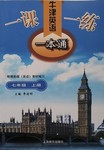题目内容
28. The reason for his success is ______ he worked very hard.
| A.why | B.that | C.whether | D.How |
B
解析

 开心蛙状元作业系列答案
开心蛙状元作业系列答案 课时掌控随堂练习系列答案
课时掌控随堂练习系列答案 一课一练一本通系列答案
一课一练一本通系列答案Why should mankind explore space? Why should money, time and effort be spent exploring and researching something with so few apparent benefits? Why should resources be spent on space rather than on conditions and people on Earth? These are questions that, understandably, are very often asked.
Perhaps the best answer lies in our genetic makeup(基因构成) as human beings. What drove our ancestors to move from the trees into the plains, and on into all possible areas and environments? The wider the spread of a species, the better its chance of survival. Perhaps the best reason for exploring space is this genetic tendency to expand wherever possible.
Nearly every successful civilization has explored, because by doing so, any dangers in surrounding areas can be identified and prepared for. Without knowledge, we may be completely destroyed by the danger. With knowledge, we can lessen its effects.
Exploration also allows minerals and other potential (潜在的) resources to be found. Even if we have no immediate need of them, they will perhaps be useful later. Resources may be more than physical possessions. Knowledge or techniques have been acquired through exploration. The techniques may have medical applications which can improve the length or quality of our lives. We have already benefited from other spin-offs including improvements in earthquake prediction, in satellites for weather forecasting and in communications systems. Even non-stick pans and mirrored sunglasses are by-products (副产品) of technological developments in the space.
While many resources are spent on what seems a small return, the exploration of s pace allows creative, brave and intelligent members of our species to focus on what may serve to save us. While space may hold many wonders and explanations of how the universe was formed or how it works, it also holds dangers. The danger exists, but knowledge can help human being to survive. Without the ability to reach out across space, the chance to save ourselves might not exist.
pace allows creative, brave and intelligent members of our species to focus on what may serve to save us. While space may hold many wonders and explanations of how the universe was formed or how it works, it also holds dangers. The danger exists, but knowledge can help human being to survive. Without the ability to reach out across space, the chance to save ourselves might not exist.
While Earth is the only planet known to support life, surely the adaptive ability of humans would allow us to live on other planets. It is true that the lifestyle would be different, but human life and cultures have adapted in the past and surely could in the future.
【小题1】Why does the author mention the questions in Paragraph 1?
| A.To express his doubts. | B.To compare different ideas. |
| C.To introduce points for discussion. | D.To describe the conditions on Earth. |
| A.Humans are nature-born to do so. |
| B.Humans have the tendency to fight. |
| C.Humans may find new sources of food. |
| D.Humans don’t like to stay in the same place. |
| A.survival chances | B.unexpected benefits |
| C.potential resources | D.physical possessions |
| A.The adaptive ability of humans. | B.Resources on the earth.. |
| C.Our genetic makeup. | D.By-products in space exploration. |
| A.Space exploration has created many wonders. |
| B.Space exploration provided the best value for money. |
| C.Space exploration can benefit science and technology. |
| D.Space exploration may help us avoid potential problems on Earth. |
Although English is not as old as Chinese, it is spoken by many people around the world every day. English speakers are always creating new words, and we should be able to know where most words come from.
Sometimes, however, no one may know really where a word comes from. Did you ever think about why hamburgers are called hamburgers, especially when they are not made with ham( 火腿 )? About a hundred years ago, some men went to America from Europe. They came from a big city in Germany called Hamburger. They didn’t speak good English, but they ate good food. When some Americans saw them eating round pieces of beef, they asked the Germans what it was. The Germans did not understand the question and answered. “We came from Hamburger.” One of these Americans owned a restaurant, and had an idea. He cooked some round pieces of beef like what the men from Hamburger ate. Then he put them between two pieces of bread and started selling them. Today “ hamburgers” are sold in many countries around the world.
Whether this story is true or not, it certainly is interesting. Knowing why any word has a certain meaning is interesting, too. The reason may be found in any large English dictionary.
【小题1】According to the writer, English ______.
| A.is as old as Chinese | B.is not so old as Chinese |
| C.is older than German | D.is very difficult to learn |
| A.few Americans like hamburgers |
| B.hamburgers are made with beef |
| C.hamburgers are made with ham |
| D.hamburgers were sold all over the world about a century ago |
| A.Where all the new words come from |
| B.Where those Germans came from |
| C.The reason why any word has a certain meaning. |
| D.The reason why English is spoken around the world |
| A.China because it has a long history |
| B.England because Germans don’t speak good English |
| C.the round pieces of beef those people from Hamburger brought to America |
| D.English speakers because they always create new words |
Why should I teach my children history? That sounds like a stupid question to even ask. But, as I hear different home schooling teachers discuss history, I get the idea that there may be different reasons for teaching history. Let me briefly explain the three good reasons for studying history and two bad reasons for studying history.
The major reason I see for studying history is that we can learn from the past. I am convinced that the world would be a much better place if more people understood the successes and failures of the past and the things that made these successes and failures. However, as the unfortunately true statement goes "the one thing we seem to learn from history is that we don't seem to learn from history." Perhaps at least in teaching history, to my children I can do a small part in changing this.
A second major reason for studying history is that it is hard to understand the current political climate in the absence of an understanding of its historical context. We can not even understand why we are and where we are without history, much less (更不必说) try to figure out where we are going or how we should get where we want to be.
I teach my children history, for one more reason. I purchased a set of historical audio (录音机) tapes for our children. My seven-year-old son listened to them over and over. It was my hope that he would become inspired by the accomplishments of people like the Wright brothers to accomplish things by himself. I think that it is good that we celebrate the accomplishments of people like Martin Luther King Jr. if, in doing so, young people are called on to stand for the principles that he stood for and accomplish what he accomplished. I also think that by studying people like Adolph Hitler, people can learn to stand against the things that he stood for.
【小题1】The main purpose of this passage is to __________.
| A.instruct the parents how to teach their children history |
| B.show the importance of history in politics |
| C.explain the reasons why children study history |
| D.introduce the writer’s own way of teaching history |
| A.One can learn from history in order not to make the same mistakes. |
| B.It can help us to understand the current political climate. |
| C.Without history, one can be nothing but a fool in every aspect. |
| D.One can know the principle of doing something and not doing something. |
| A.people can be inspired to do good, while also learning to fight against evil |
| B.people may also learn from bad historical figures |
| C.more celebrations should be held to honor their achievements |
| D.today’s people can also achieve what they achieved |
| A.How to teach history effectively. |
| B.Some negative reasons for studying history. |
| C.How to get more people to study history. |
| D.Some bad historical figures. |